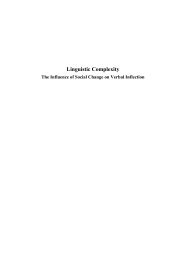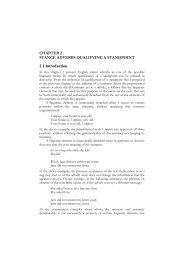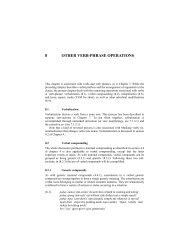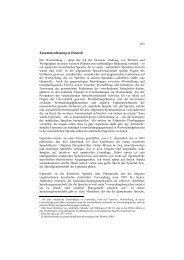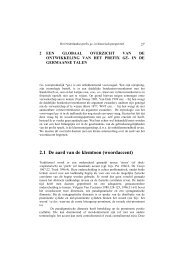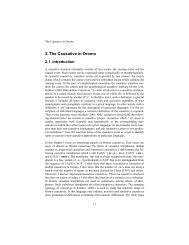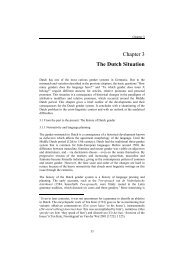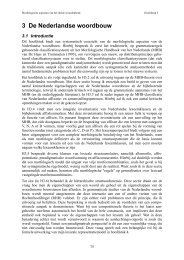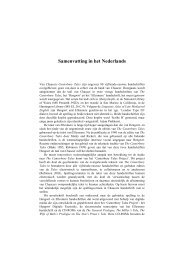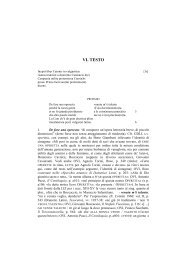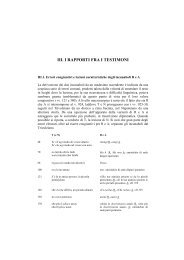Chapter 9 - LOT publications
Chapter 9 - LOT publications
Chapter 9 - LOT publications
You also want an ePaper? Increase the reach of your titles
YUMPU automatically turns print PDFs into web optimized ePapers that Google loves.
Accounts of SLI in Afrikaans<br />
opt for omitting the sound form of all copies, resulting in none of<br />
the copies being spelled out phonologically.<br />
The second problem pertaining to the omission of modal<br />
auxiliaries is that the meaning of the sentence might no longer be<br />
clear if a modal is omitted. Unlike the omission of the temporal<br />
auxiliary het – which does not lead to an interpretation problem,<br />
due to the fact that the “past” interpretation is arguably<br />
recoverable from the past participle verb; cf. *Hy geslaap vs Hy het<br />
geslaap – the omission of a modal auxiliary could make the<br />
intended meaning of the sentence unclear. For example, by<br />
omitting a modal auxiliary like sal ‘will’, moet ‘must’, mag ‘may’, or<br />
kan ‘can’, it is not clear exactly what the child intends to ask with<br />
*Ons met die ding werk?.<br />
(v, vi) The fact that the Afrikaans-speaking children with SLI are ageappropriate<br />
in terms of their production of the past tense forms of<br />
be, but frequently omit the present tense form of be, could be<br />
explained as follows: A structure expressing a proposition<br />
minimally consists of a subject argument and a predicate, and the<br />
smallest construction by which such a proposition can be<br />
expressed is a so-called small clause. A small clause does not allow<br />
for more than one argument: It consists of a subject to which a<br />
specific attribute is given (e.g., John handsome in I find John handsome).<br />
Where the be is omitted, a construction similar to a small clause is<br />
rendered – the be is implied and its omission does not alter the<br />
intended meaning of the sentence. However, if one wants to<br />
convey the idea that a subject previously had a specific attribute<br />
but no longer has it, the verb can no longer be implied. For<br />
instance, one can omit the be in *Ek hier ‘I here’ and still convey<br />
the intended meaning, namely “I am here”. However, if one wants<br />
to convey that one had been somewhere (as in Ek was hier (gewees)<br />
‘I had been here’), a phonologically realised verb is required. On<br />
this proposal then, is ‘be-PRESENT’ can be left phonologically<br />
empty without compromising meaning, but was (gewees) ‘be-PAST’<br />
must be expressed phonologically in order to convey the intended<br />
meaning.<br />
284



